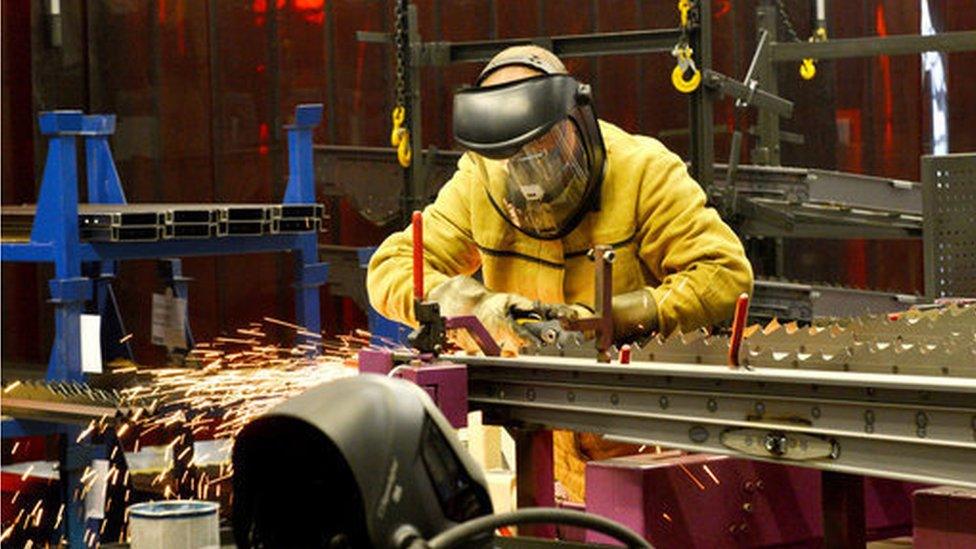Coronavirus: Foreign investment shows signs of stalling
- Published

Foreign investment in Scotland remained positive last year but is showing signs of stalling with the current health crisis, according to a report.
EY's annual survey of "attractiveness" of different parts of the UK in securing inward investment has placed Scotland in lead place behind London for the seventh year in a row.
The number of projects in Scotland was up to 101, after a dip in 2018 to 94.
That raised the Scottish share of UK-bound projects to above 9%.
However, the accountancy group's survey of investors found 65% of announced projects had been put on hold since the Covid-19 crisis began. Only 3% had been cancelled completely.
EU caution
European Union countries were found to have a markedly higher level of caution among foreign investors.
Glasgow secured one more investment project than Edinburgh last year, with 23.
Finance house JP Morgan had the biggest single project last year, with an intention to build up to 2,700 employees in Glasgow.
That helped boost the total number of jobs created (those that are disclosed by investors) to more than one sixth of the UK total.
The average of the 101 projects in Scotland created 83 jobs, while the average in the UK as a whole created 53.
The report found Scotland's two main cities were in the top six UK cities for attracting projects, behind London, Manchester and Birmingham. Aberdeen was in eighth equal place.
A clear trend in recent years has been towards major cities being the most powerful magnets for inward investments, with smaller towns that used to do well as manufacturing hubs, having less of a pull.
Quality of life, the pool of available skilled labour and universities are among the factors drawing people to cities.
London remains very dominant in the analysis, with 538 projects attracted. That was nearly half the total.
A weaker sign for Scotland was in attracting companies that had not previously invested in the country. Most of its success comes from existing foreign investors wishing to deepen their presence in the country.
The share of new investors was down to only 6% of the total.
The attractiveness survey suggests that fears of Brexit having the effect of slowing interest in investment in the UK is not to be found.
However, interest from the European Union has weakened, and the USA has strengthened its position as the most active inward investing country for Scotland, with more than a third of projects.
France was next, with nine of the 101 projects, and Russia - with four projects - moved into the top 10 countries investing in Scotland.
The survey found 53% of investors believed Brexit would make the UK less attractive for investment, with 30% saying it would be more attractive. The number seeing it as a risk factor for investment was down to 24%.
Other findings were that manufacturing and sales officers were leaders for attracting new foreign investment, followed by food and drink and business services.
'Real strength'
Commenting on the report, EY's managing partner in Scotland, Ally Scott, said: "Scotland has a real strength in the diversity of projects it attracts with a healthy blend between manufacturing and services.
"The boost in manufacturing places Scotland as the UK leader for this sector".
Scottish Enterprise senior manager Charlie Smith added: "We know that Covid-19 will have an impact on FDI (foreign direct investment) flows, not just for Scotland but for countries across the world.
"However, FDI levels remain stable in Scotland's priority areas where we excel, such as advanced manufacturing and low-carbon technologies."